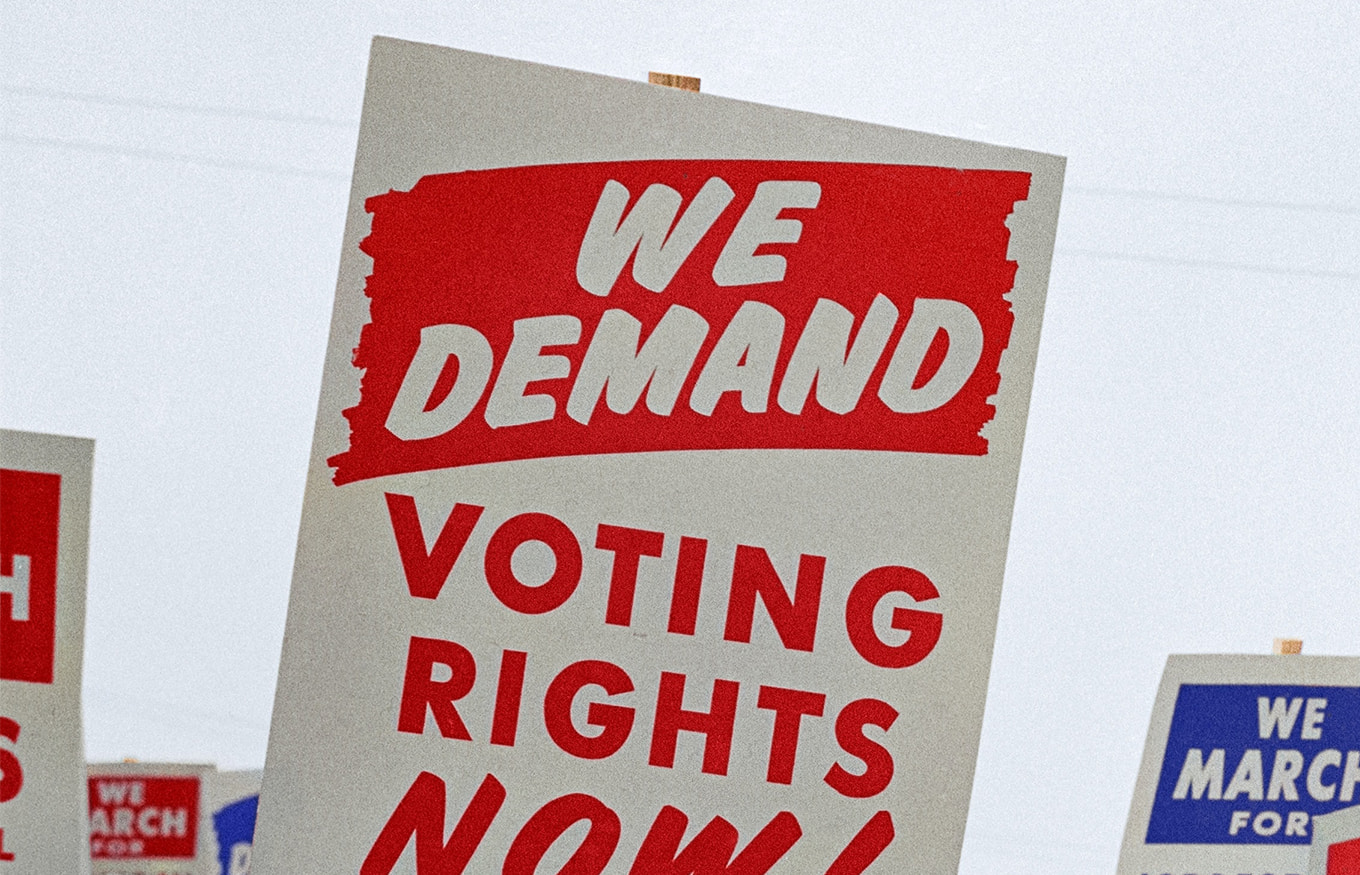
Solution
Protecting the right to vote
It’s time for Congress to once again act to protect one of our most fundamental and sacred rights: the freedom to vote.
The problem:
Americans’ freedom to vote is foundational to our representative democracy — a freedom that has been hardwon. The United States has a long, ugly history of denying eligible segments of our society access to the ballot box based on race, gender, and other discriminatory factors. In recognition of such abuses, Congress gave the federal government the authority to step in when warranted with the Voting Rights Act of 1965.
In recent years, however, state legislatures and courts have severely undermined protections created by Congress to protect Americans’ freedom to vote. The Supreme Court struck down key provisions in the Voting Rights Act in 2013 and 2020. Meanwhile, legislators in states around the nation continue to lead an unprecedented assault on democracy, using election disinformation to further entrench their power by putting election administration under partisan control and passing measures with extreme anti-voting provisions.
It’s time for Congress to once again act to protect one of our most fundamental and sacred rights.
Solution:
The Voting Rights Act (VRA) has a long history of bipartisan support and was last reauthorized by the Senate unanimously in 2006. The 2013 landmark Shelby County v. Holder struck down pieces of the act that required updating, while still affirming the constitutionality of the VRA itself. However, recent Supreme Court decisions have reaffirmed Section 2 of the Voting Rights Act, re-opening a pathway for gerrymandering reform and strengthening the right to vote once again. Despite this landmark decision, more legislation is needed to protect the fundamental right to vote.
The John R. Lewis Voting Rights Advancement Act (H.R. 14), reintroduced in the 118th Congress, would prevent discriminatory voting policies and make sure that changes to voting laws that could discriminate against voters based on race or background are federally reviewed by restoring the VRA.
The bill would:
- Create new criteria to determine what states and political subdivisions have a history of voting rights violations that will require them to prove that their proposed voting laws do not have a discriminatory intent before they can make changes.
- Address instances of voting discrimination that have become more prevalent or haven’t been previously addressed by the VRA.
- Require the states and political subdivisions to notify the public of changes to voting practices.
- Create provisions to overturn voting practices that have a discriminatory impact, even if they do not necessarily have a discriminatory intent.
Learn more about our election protection and voting rights & access work.

